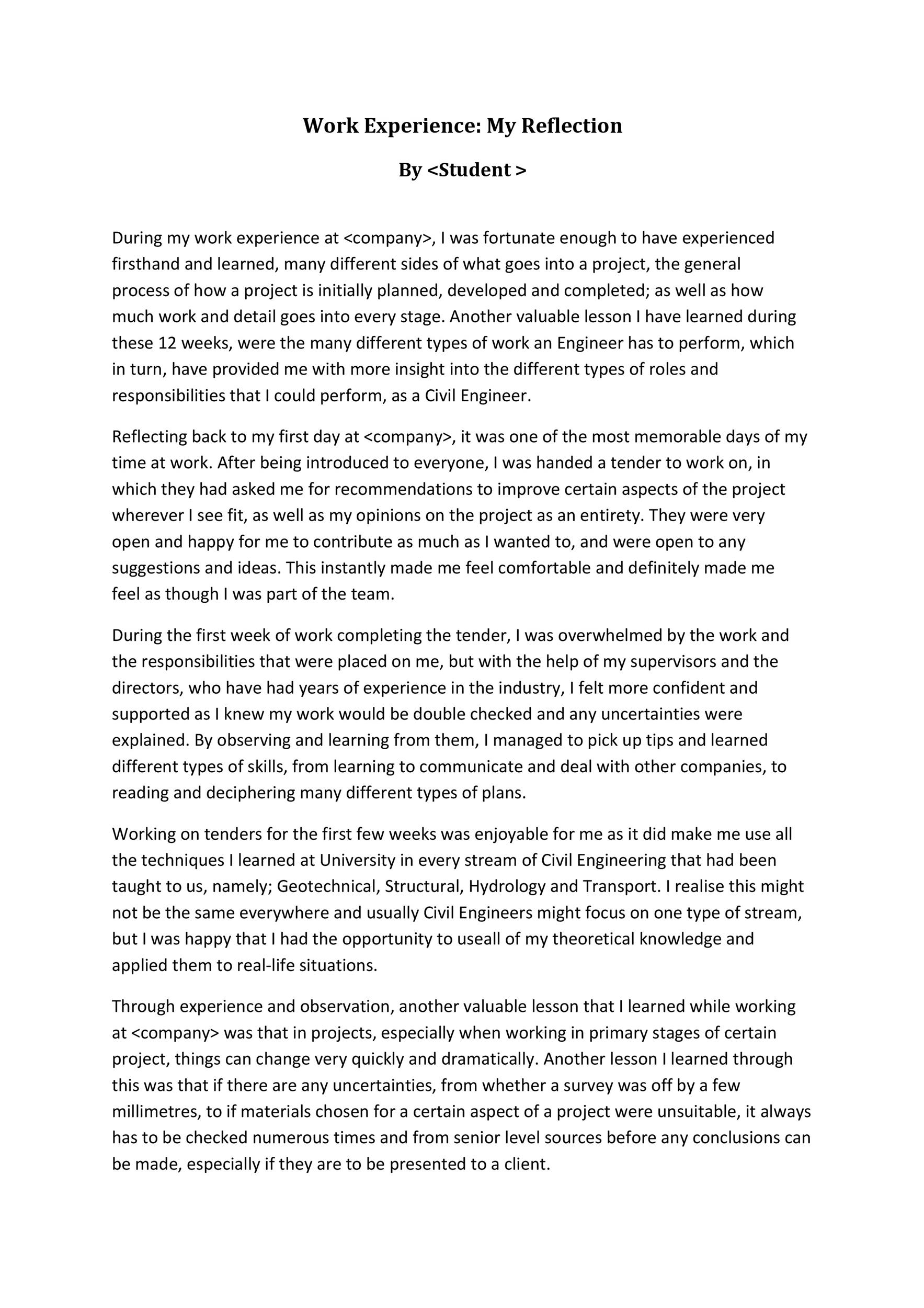Weekly Reflection: Learning From Past Failures

Table of Contents
Identifying Past Failures
To effectively learn from our mistakes, we must first honestly identify them. This isn't about self-flagellation; it's about constructive self-assessment.
Honest Self-Assessment
Honest self-evaluation is crucial. It requires introspection and a willingness to confront uncomfortable truths.
- Journaling: Regularly jot down your experiences, both positive and negative. Analyze your feelings and identify patterns.
- Project Reviews: After completing a project (personal or professional), take time to review what went well and, more importantly, what didn't.
- Seeking Feedback: Actively solicit feedback from trusted colleagues, friends, or mentors. Their perspectives can offer valuable insights you may have missed.
For example, during a recent project, honest self-assessment revealed my tendency to rush through the planning phase, leading to inefficient execution and missed deadlines. This was a crucial area for improvement.
Defining the Scope of Failure
Not all setbacks are created equal. It's vital to distinguish between minor setbacks and significant failures. Defining the scope helps focus your reflection.
- Differentiating Setbacks from Failures: A minor setback might be missing a small deadline, while a significant failure could be a missed project launch.
- Defining Impact: Consider the consequences of each failure. How did it affect you, your team, or your goals?
Clearly defining the scope, for instance, helped me understand that while missing a small deadline was frustrating, it didn't compare to the impact of misinterpreting client requirements, which led to significant rework.
Analyzing the Causes of Failure
Once you’ve identified your failures, delve into the underlying causes. This involves a systematic approach like root cause analysis.
Root Cause Analysis
Root cause analysis helps you get to the core of the problem, preventing similar issues in the future.
- Common Root Causes: These often include lack of planning, poor execution, insufficient resources, unrealistic expectations, or external factors beyond your control.
- Methods for Identifying Root Causes: Utilize techniques like the "5 Whys" (repeatedly asking "Why?" to uncover the root cause) or a fishbone diagram (visualizing potential causes).
For example, by applying the 5 Whys to my project deadline miss, I uncovered the root cause: insufficient time allocation due to poor initial planning.
Taking Ownership
Avoid making excuses. Taking ownership of your failures is paramount for growth.
- Benefits of Ownership: It fosters faster learning, increases self-awareness, and improves accountability.
- Strategies for Accepting Responsibility: Acknowledge your role, analyze your actions, and avoid blaming others.
Taking ownership of my planning deficiency allowed me to pinpoint the need for better time management skills and more thorough project scoping, preventing future mistakes.
Developing Strategies for Future Success
The final step transforms past failures into actionable steps for future success.
Actionable Steps for Improvement
Turn your identified weaknesses into strengths.
- SMART Goals: Set Specific, Measurable, Achievable, Relevant, and Time-bound goals.
- Concrete Strategies: Develop concrete strategies to prevent repeating mistakes. This might include new processes, improved skills, or seeking additional resources.
I translated my weakness in planning into a SMART goal: "Improve project planning by 20% within the next three months by using project management software and attending a time management workshop."
Seeking Mentorship and Feedback
Don't underestimate the value of external perspectives.
- Benefits of External Perspectives: Mentors and peers can offer valuable insights and challenge your assumptions.
- Strategies for Seeking Constructive Criticism: Be open to feedback, even if it’s difficult to hear. Actively solicit criticism and use it for growth.
- Building a Supportive Network: Surround yourself with people who will offer support and honest feedback.
Seeking feedback from a senior project manager revealed alternative project management methodologies that significantly improved my planning and execution.
Conclusion
Regular weekly reflection is a powerful tool for personal and professional growth. By honestly assessing past failures, performing root cause analysis, and developing actionable strategies, you can transform mistakes into valuable learning experiences. The process of learning from failures, a core component of successful weekly reflection, is transformative.
Start your journey of growth today with consistent weekly reflection and turn your past failures into stepping stones for success. Schedule dedicated time for reflection, use journaling prompts focused on your failures, and actively seek feedback from trusted sources. Embrace the power of learning from failures, and watch your progress soar.

Featured Posts
-
 Is Josh Hart The Knicks Draymond Green Analyzing His Contributions
May 17, 2025
Is Josh Hart The Knicks Draymond Green Analyzing His Contributions
May 17, 2025 -
 Honda Production Shift Us Tariffs And Canadian Export Opportunities
May 17, 2025
Honda Production Shift Us Tariffs And Canadian Export Opportunities
May 17, 2025 -
 Analyst Mike Breens Banter With Mikal Bridges The Latest Nba Commentary Snippet
May 17, 2025
Analyst Mike Breens Banter With Mikal Bridges The Latest Nba Commentary Snippet
May 17, 2025 -
 Knicks Fans On Edge Latest Jalen Brunson Injury News
May 17, 2025
Knicks Fans On Edge Latest Jalen Brunson Injury News
May 17, 2025 -
 Ontarios 14 6 Billion Deficit Tariff Impacts And Economic Outlook
May 17, 2025
Ontarios 14 6 Billion Deficit Tariff Impacts And Economic Outlook
May 17, 2025
Latest Posts
-
 Missouri State Board Of Education Welcomes Former Springfield Councilman
May 17, 2025
Missouri State Board Of Education Welcomes Former Springfield Councilman
May 17, 2025 -
 Acidente Com Onibus Universitario Numero De Vitimas Ainda Nao Confirmado
May 17, 2025
Acidente Com Onibus Universitario Numero De Vitimas Ainda Nao Confirmado
May 17, 2025 -
 Davenport Council Greenlights Apartment Building Tear Down
May 17, 2025
Davenport Council Greenlights Apartment Building Tear Down
May 17, 2025 -
 Onibus Universitario Se Envolve Em Grave Acidente
May 17, 2025
Onibus Universitario Se Envolve Em Grave Acidente
May 17, 2025 -
 Apartment Building Demolition Approved By Davenport Council
May 17, 2025
Apartment Building Demolition Approved By Davenport Council
May 17, 2025
